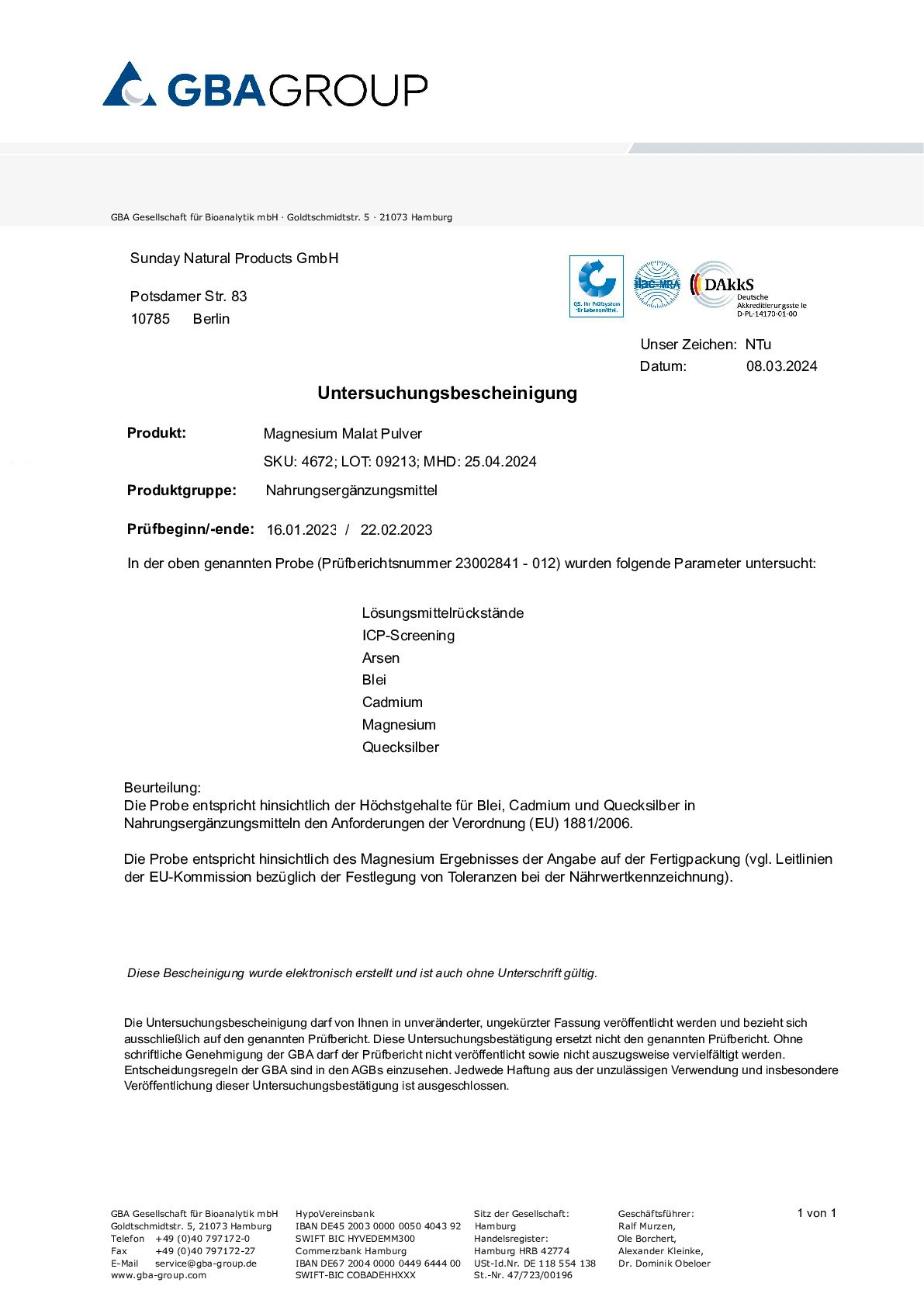Magnesium Malate
Magnesium malate is an organic compound consisting of magnesium and malic acid (2-hydroxydicarboxylic acid). The complex magnesium bond protects the magnesium itself. Malic acid is a natural fruit acid found in fruits and vegetables.
As with other magnesium compounds, the body benefits not only from the magnesium contained, but also from the effects of the binding partner. Malate is an intermediate product in the citrate cycle, the hub of metabolism and energy production, and together with magnesium, calcium and phosphorus is involved in the formation of the energy store ATP (adenosine triphosphate). The synergistic combination of magnesium and malic acid contributes to normal energy production metabolism, reduction of tiredness and fatigue and normal functioning of the nervous system.
Magnesium malate is particularly soluble in water and thus has a high bioavailability. Magnesium malate, in contrast to other magnesium salts (magnesium oxide, magnesium carbonate, magnesium citrate), has a very low risk of developing diarrhoea, even when consumed in large quantities, and is much less irritating to the digestive tract.
Health Benefits of Magnesium According to the European Food Safety Authority (EFSA)
Magnesium contributes to:
- The reduction of tiredness and fatigue
- Electrolyte balance
- Normal energy-yielding metabolism
- Normal functioning of the nervous system
- Normal muscle function
- Normal protein synthesis
- Normal psychological function
- The maintenance of normal bones
- The maintenance of normal teeth
and magnesium has a role in the process of cell division.























